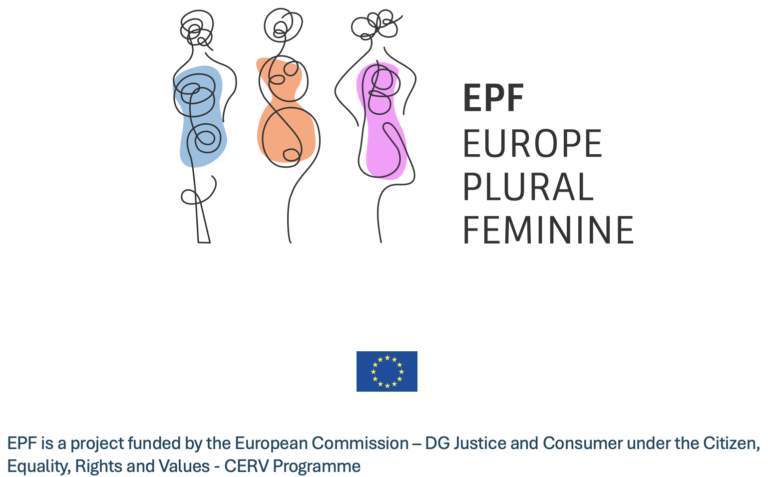Child Protection Policy

Xcamp, as part of its participation in the EPF Consortium, has adopted the following policy for the protection of minors, extended to all its activities involving minors.

1 Introduction
The Child Protection and Safety Policy of the EPF Consortium (Confcommercio Imprese per l’Italia Nord Sardegna, Solidaridad Sin Fronteras NGO, Camara de Comercio e Industria Italiana para Espana, Italienische Handelskammer fur Deutschland, XCamp srls, Universite de Corse Pascal Paoli, Lunàdigas APS) outlines our commitment to safeguarding children, adolescents, and youth participating in our activities, services, and projects. Child protection refers to the prevention and response to all forms of abuse, neglect, exploitation, and violence against children.
2 Scope
This policy applies to all individuals associated with the EPF Consortium members, including employees, volunteers, interns, consultants, contractors, and any other collaborators. It encompasses measures to prevent accidents, injuries, and other safety risks in addition to safeguarding against maltreatment and abuse.
3 Policy standards
Policy: We prioritize the safety and security of children in all aspects of our work, guided by principles of prevention, precaution, and preparedness. Our policies and procedures align with international standards and best practices in child protection and safety.
People: We empower all individuals associated with the EPF Consortium members to contribute to the safety of children by providing training, resources, and support Employees and collaborators are encouraged to identify and address safety concerns proactively.
Procedures: We have established clear procedures for assessing and mitigating safety risks in our activities, services, and projects. These procedures include conducting risk assessments, implementing safety measures, and responding effectively to emergencies and incidents.
Accountability: We maintain accountability for child safety through regular monitoring, evaluation, and review of our safety measures. Internal audits and external assessments are conducted to ensure compliance with our policies and standards and identify areas for improvements.
4 Measures for child safety
Risk assessment: Before engaging in any activity or project involving children, we conduct thorough risk assessment to identify potential safety hazards and implement appropriate control measures,
Supervision: Children participating in our activities are supervised at all times by qualified staff and volunteers who have undergone background checks and training in child safety and supervision.
Transportation Safety: We ensure that transportation arrangements for children are safe and secure, including the use of seat belts, appropriate seating arrangements, and supervision during travel.
Facility Safety: Facilities used for our activities are inspected regularly to ensure compliance with safety regulations and standards. Safety measures such as fire exits, first aid kits, and emergency contact information are prominently displayed.
Health and Hygiene: We promote good health and hygiene practices among children, including handwashing, sanitation, and proper nutrition. First aid supplies and trained personnel are available to address medical emergencies.
Communication and Reporting: We maintain open communication channels for reporting safety concerns or incidents involving children. All reports are treated confidentially and investigated promptly and thoroughly.
Training and Capacity Building: We provide training and capacity building opportunities for staff and volunteers on child safety policies, procedures, and practices. This includes training on recognizing signs of abuse, responding to emergencies, and promoting a culture of safety.
5 Child protection representative
Each of the members of the EPF Consortium designate a Child Protection representative in each company for overseeing the implementation of this policy and serving as the primary point of contact for children protection concerns:Camara de Comercio e Industria Italiana para Espana, Mrs. Michela dell’Acqua
Università di Corsica Pascal Paoli, Prof. Sebastien Quenot
6 Dos and Don’t Dos
Dos:
- Do prioritize the safety and well-being of children in all activities and interactions.
- Do provide regular training and support to staff and volunteers on child protection policies and procedures.
- Do maintain open communication channels for reporting concerns or incidents involving children.
- Do conduct regular risk assessments and implement appropriate safety measures.
- Do respond promptly and effectively to child protection concerns or incidents.
Don’ts:
- Don’t ignore or minimize concerns raised about the safety or well-being of children.
- Don’t engage in behavior that could jeopardize the safety or dignity of children.
- Don’t tolerate any form of maltreatment, abuse, or exploitation of children.
- Don’t hesitate to seek guidance or support from the designated Child Protection Representative or relevant authorities when necessary.
7 Conclusions
The members of the EPF Consortium are committed to creating a safe and nurturing environment for children involved in our programs and activities. By adhering to this Child Protection and Safety Policy and fostering a culture of vigilance and accountability, we strive to fulfill our duty to protect the rights and dignity of every child.
Date of Policy Implementation: 31.03.2024
Xcamp s.r.l.s.
P.I. IT06850720829
